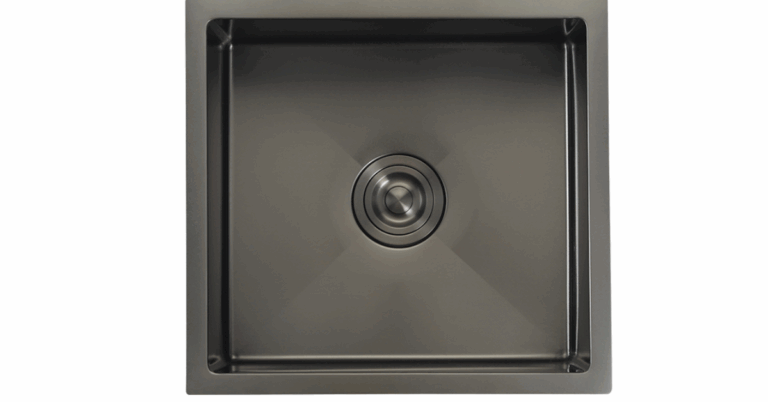Sales Tracking For Small Business 2025
Sales Tracking For Small Business is a critical function that directly influences profitability and growth. For many small businesses, having a clear and accurate method to monitor sales activities is the difference between stagnation and scaling up. This comprehensive guide will walk you through the essentials of sales tracking, how it benefits small businesses, and what tools can help simplify the process.
What is Sales Tracking For Small Business?
Sales tracking for small business refers to the process of recording, analyzing, and managing sales data in order to optimize performance. It includes monitoring customer interactions, order history, sales rep activity, revenue generation, and customer retention. For small business owners, it provides valuable insights into what products or services are selling, which strategies are effective, and how sales teams are performing.
Why Sales Tracking For Small Business Matters
Sales tracking for small business is not just a managerial task; it’s a strategic necessity. By tracking sales, small businesses can:
- Identify top-performing products or services
- Monitor team performance and set realistic sales targets
- Understand customer buying behavior
- Improve lead conversion rates
- Streamline inventory management
When sales tracking is done right, it gives small businesses the data they need to make informed decisions, allocate resources wisely, and boost revenue.
Benefits of Sales Tracking For Small Business
Better Decision Making
Sales tracking for small business provides concrete data that helps business owners make strategic decisions. From pricing adjustments to promotional campaigns, having accurate sales data guides smart planning.
Enhanced Customer Relationships
Tracking sales means tracking customer interactions. This data allows small businesses to personalize their communication, offer timely follow-ups, and enhance the overall customer experience.
Performance Monitoring
Sales tracking allows managers to monitor how each team member is performing. You can identify who is excelling and who needs support, making it easier to train, incentivize, or reassign roles.
Forecasting and Goal Setting
Sales tracking for small business also helps in forecasting future sales trends. This enables more accurate goal-setting and budgeting, helping you prepare for seasonal changes or new market demands.
Essential Features in Sales Tracking Tools For Small Business
When choosing a sales tracking tool for your small business, it’s important to look for specific features that cater to your needs:
- Lead Management: Helps track potential customers from first contact to final sale.
- Contact Management: Keeps all customer information in one place.
- Pipeline Visualization: Allows you to see the stages of each sale and where prospects are in the buying process.
- Activity Logging: Tracks every interaction with clients.
- Reporting and Analytics: Provides data-driven insights on sales performance.
These features streamline operations and save time by automating repetitive tasks.
How To Implement Sales Tracking For Small Business
Step 1: Define Your Sales Process
Outline each step your customer takes from initial contact to purchase. This helps in identifying key metrics and setting up the sales tracking system.
Step 2: Choose the Right Sales Tracking Software
Select software that suits your business size, industry, and budget. Ensure it has features that align with your sales goals and team structure.
Step 3: Train Your Team
Sales tracking for small business works only when the team understands how to use the system. Provide training sessions and ensure everyone logs their activities consistently.
Step 4: Monitor and Optimize
Regularly review the sales data to find areas of improvement. Adjust strategies, reassign tasks, and set new goals based on real-time data.
Best Practices for Sales Tracking For Small Business
- Keep it Simple: Don’t overcomplicate your tracking system. Use simple dashboards and easy-to-understand metrics.
- Be Consistent: Make sure your team uses the tool regularly and accurately.
- Review Data Weekly: Set a weekly review meeting to go over the numbers.
- Automate Where Possible: Use automation features to save time on repetitive tasks.
Common Challenges in Sales Tracking For Small Business
Despite its benefits, sales tracking for small business can have its challenges:
- Data Overload: Too much data can be overwhelming. Focus only on KPIs that matter.
- Resistance to Change: Team members may resist using new tools. Overcome this with training and communication.
- Inconsistent Data Entry: Incomplete or incorrect data can ruin your tracking efforts. Set standards and monitor compliance.
Improving Sales With CRM Software
CRM software tailored for small business sales tracking brings all your customer data, sales activities, and performance metrics into one platform. This centralization reduces errors and boosts productivity.
A good CRM system enables:
- Real-time sales tracking
- Integration with email and marketing tools
- Mobile access for field sales reps
- Customizable dashboards and reports
Sales Tracking For Small Business: Real-World Example
Consider a local retail shop that recently started using a sales tracking tool. Before implementation, they relied on spreadsheets and handwritten notes. Post-implementation, the owner noticed a 25% increase in monthly sales. The tool helped identify best-selling items, customer preferences, and sales reps’ performance. By adjusting inventory and focusing on top-performing staff, they optimized the entire sales process.
Sales Tracking For Small Business: Future Trends
In the coming years, sales tracking for small business will increasingly rely on artificial intelligence and machine learning. These technologies will predict customer behavior, automate responses, and recommend sales strategies. Cloud-based tools and mobile CRM applications will also become more popular, allowing remote teams to stay connected.
FAQ About Sales Tracking For Small Business
What is the best way to track sales for a small business?
The best way is to use a CRM software specifically designed for small businesses. It automates tracking, improves accuracy, and provides real-time insights.
Can I track sales manually?
Yes, but manual tracking is time-consuming and prone to errors. As your business grows, manual systems can hinder performance.
How often should I review my sales data?
It’s recommended to review sales data weekly for short-term strategies and monthly for long-term planning.
What key metrics should I track?
Track revenue, conversion rates, average deal size, sales cycle length, and customer acquisition cost.
Is sales tracking expensive?
Not necessarily. Many CRM tools offer affordable plans for small businesses, making it a cost-effective investment.
Conclusion
Sales tracking for small business is essential for growth, efficiency, and competitive advantage. With the right tools, a defined process, and consistent monitoring, small businesses can gain invaluable insights that lead to higher conversions and increased revenue. Whether you’re just starting out or looking to optimize an existing system, investing in sales tracking will pay off in both the short and long term.







